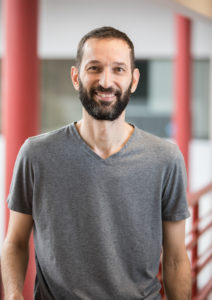June 3, 2022

The Canadian Society for Exercise Physiology (CSEP) and the University of New Brunswick and Université de Moncton are pleased to announce the return of CSEP’s in-person annual conference! There is a great line-up of Symposia to look forward to and we’ve interviewed each presenter to give you a preview of what to expect and how attending will benefit you.
In this feature we talk to Juan Murais, an Associate Professor in the Faculty of Kinesiology at the University of Calgary. Juan is presenting the “Symposium 21: Aerobic exercise prescription in research and training – time for a paradigm shift!” at CSEP 2022. His co-presenters include Calaine Inglis, Daniel Keir, and Danilo Iannetta.
What are you most looking forward to about an in-person conference this year?
I am mostly looking forward to some “normal” human interactions while discussing the work that we do. Even more so, I look forward to discussing science as a valid pretext to enjoy a beer or coffee with friends from our CSEP community!
What can CSEP certified members learn from attending the symposium you’re chairing that they can apply to their practice?
We believe that the work that we are doing in relation to aerobic exercise prescription will contribute to re-shaping physical activity and exercise prescription guidelines. Our work consistently demonstrates that so-called “non-responders” to exercise training do not exist (at least from a cardiovascular perspective) when endurance exercise training is adequately prescribed. Members attending this symposium will receive theoretical information to understand how to prescribe endurance exercise and they will see the latest data on exercise prescription that should provide them with ideas to improve their practice.
What do you think makes this topic and the content unique to the CSEP conference?
We are experiencing a resurgence in the area of exercise prescription in exercise physiology. This is clearly seen in the current literature on the topic, and even in some recent postings for new professors in Canadian universities. Appropriate endurance exercise prescription has been taken for granted for too many years. It is now becoming evident that some of the beliefs that are accepted as true were not right. I believe that CSEP should lead the way in terms of adequate exercise prescription and the work that we present in this symposium should contribute to that.
What advice or recommendations would you offer any early career researchers / young investigators or students who have an interest in this field?
This is a super exciting time to be an exercise physiologist! We are able to collect and process data faster and better than ever and the advances in technological developments (e.g., biosensors, power meters, etc.) will allow us to do our job with a precision that was unthinkable 10-20 years ago. There is a world to discover integrating theoretical knowledge and practical applications with the use of technologies, and the younger generations will take the lead on an exercise prescription “revolution”.





